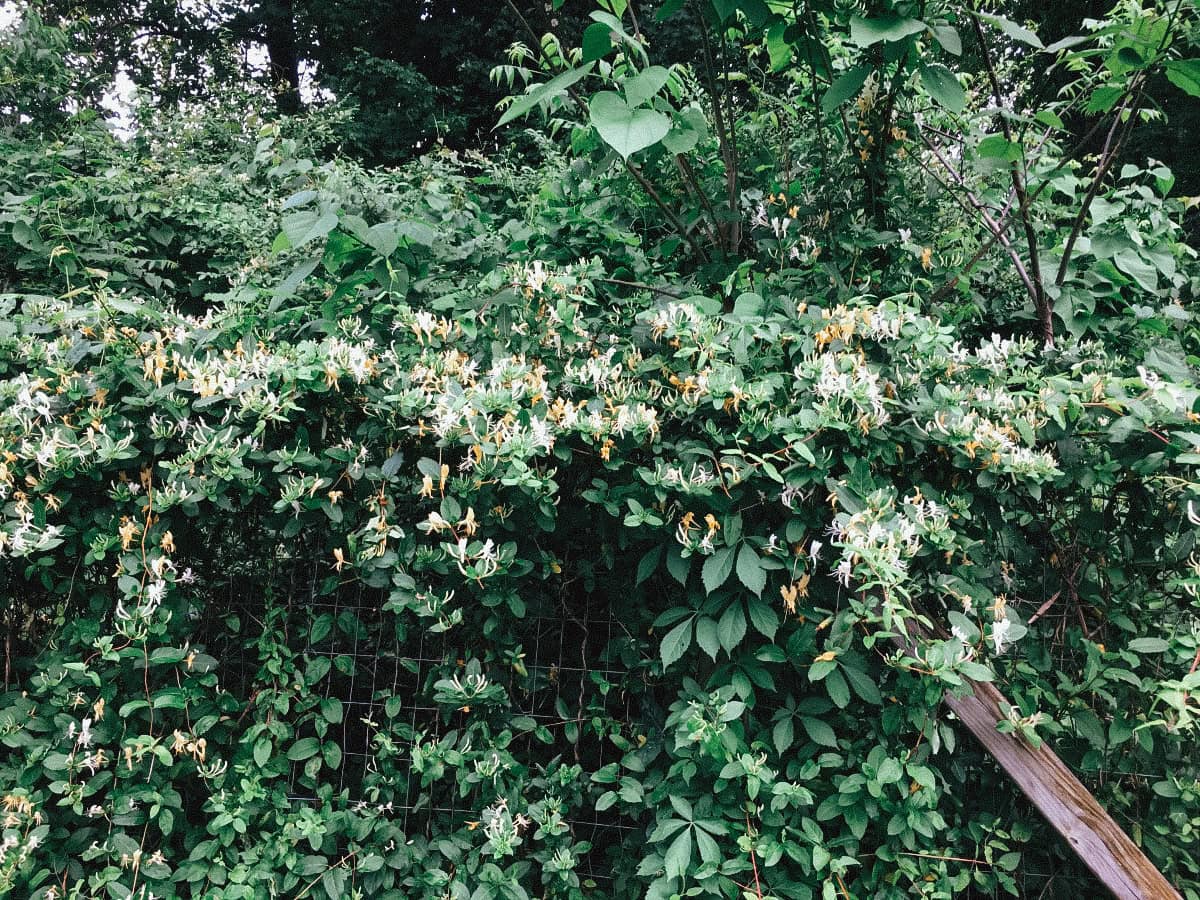
If you can’t tell from the photos in this post, we recently took a kayaking trip out on the lake. Now, we live up in the mountains of East TN in a little town called Butler, and we live right next to a big man-made lake known as Watauga Lake. In the mid-1900s, people were moved out of the old town of Butler because the valley flooded so much, moved up to higher mountain land (new Butler), and the valley was damed up and flooded, providing the area with water-powered electricity.
Anyway, on our recent trip, I found myself utilizing an herbal recipe I’ve come to love over the years as well as harvesting a favorite summer herb, so I want to share a bit more about those things with you in today’s letter.
First off, in the evening, the mosquitoes and gnats will drive you ‘bat crazy’ as we say up here, especially when you’re on the water, so for that reason, I always have my Bug Off Oil with me when we’re outside. This oil is made using the Hippy Bug Blend formula, and we put it on exposed skin to keep the bugs away. It works like a charm, and it’s easy to reapply as often as you need it.


Next off, the banks of the lake are covered in honeysuckle. As the band Little Big Town sings in their song, Boondocks…
I can taste that honeysuckle and it’s still so sweet
When it grows wild on the banks down at Old Camp Creek
Yeah, and it calls to me like a warm wind blowin’
Honeysuckle makes me think of summer here in the south unlike any other herb, and I try to use it as often as possible.
Honeysuckle is tasty and is not only used in foods and drinks, but it’s a useful herb for wellness purposes too. And the best part is that it is prolific and can be sustainably harvested… in abundance!
Honeysuckle flower is commonly harvested and used in foods and drinks. It is sweet and is often used fresh to make a honeysuckle syrup that is added to desserts or mixed drinks.
One of my favorite desserts that calls for honeysuckle syrup is an Appalachian Summer Pound Cake. It’s a perfect summer treat, and I hope you’ll give it a try sometime. Another recipe I like to make in summer is Honeysuckle Champagne. It’s ideal for sipping with friends when dining alfresco on a warm summer evening. You can find that recipe on page 40 of the Botanical Mixed Drinks Recipe Book (just substitute the chamomile flowers for honeysuckle, and you’ll be good to go!).

As I mentioned earlier, honeysuckle is useful in the home apothecary for wellness purposes. When it comes to understanding how to use any herb, I like to start by looking at the plant’s energetics.
Honeysuckle is cooling, drying, and relaxing. This means it’s best used for ailments that lead to tissue states with the opposite energetics, such as those that are hot, moist, and tense. Now if you don’t understand what I mean by the terms “energetics” and “tissue states,” let me say it this way.
If you experience a condition that creates excess heat (aka, activity or function), moisture (excess fluids), or tension in any tissue, organ, or body system, honeysuckle might be a useful herb.
Heat might look like a fever, but it can also be an overly active immune response (allergies) or even infection (pus or tissue redness). Moisture might look fluid accumulation in tissues (hello, sinus congestion), or it might look like a wet, boggy cough. Tension might look like tight tissues due to swelling and inflammation (sprained ankle, nasal congestion), but it can also present as a lack of movement of fluids or energy in the body due to constriction (cold hands and feet due to peripheral vasoconstriction).
Alright, so let’s look at how to use honeysuckle in the summer based on what we know about its energetics.
Heat: sunburn, sweating, insect bites/stings, seasonal allergies (itchy/watery eyes, sneezing/congestion, sore throat, coughing, etc.), inflamed/itchy rashes, stiff/swollen joints, earache
Moisture: seasonal allergies (itchy/watery eyes, sneezing/congestion, weepy skin rashes, lax tissues, swimmer’s ear
Tension: anxiety, frazzled nerves, muscle tension in neck and shoulders
Now these are some seasonal complaints that came to me off the top of my head. Perhaps you could add or take away to suit your personal situation or experience, but my hope is that you can see how each of these conditions fit into these energetic categories (with several of them overlapping into multiple categories).
If you find yourself experiencing any of these things, honeysuckle might be a fit for you. Honeysuckle flowers and leaf are commonly used in teas/infusions, syrups, poultices, powdered/capsules, and tinctures.
Experiencing seasonal allergy symptoms? Create an herbal tea blend with honeysuckle to sip on throughout the day or add honeysuckle tincture to a tincture blend. Use the exact same preparations to ease cool and relax frazzled nerves during a particularly busy time. Make a fresh honeysuckle poultice (or blend some dried honeysuckle with a bit of water) to cool itchy bug bites/stings or for itchy/painful rashes.
There are more ways that honeysuckle can come in handy than the conditions mentioned here. It is commonly used to support the immune system, particularly where viruses are concerned, and it has an affinity for the respiratory, digestive, and urinary systems, so if you’re having symptoms of hot, moist, tense tissue states in any of those areas, honeysuckle may be a great herbal ally to call upon.
Love and light,
Meagan